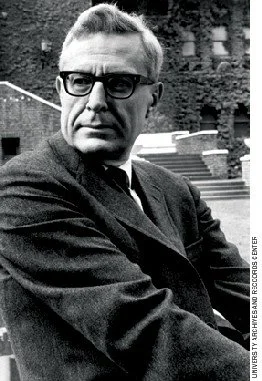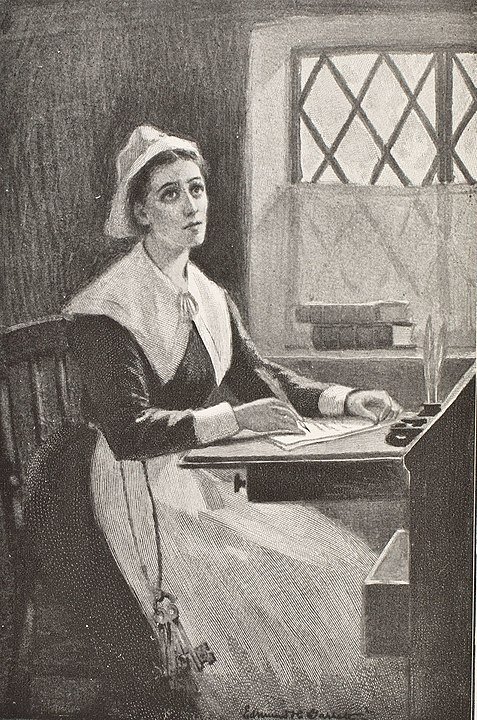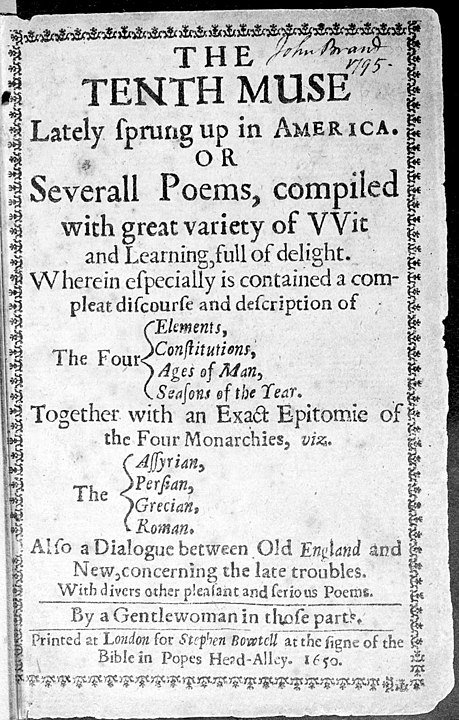For April 2023, I selected two individuals from different centuries who had to overcome obstacles to achieve their goals.
They are also both writers who shared an appreciation for the wonders of nature.
This month, I am pleased to present Loren Eiseley, whose essay about the star thrower, from his book by the same name, has been a personal inspiration to me, and Anne Bradstreet, the first published poet from the American colonies. Bradstreet was also published in England during a time when writing was thought to be an activity best left to men.
I’ve also included a quote from each author representing their deep connection to nature.
“One could not pluck a flower without troubling a star.” Loren Eiseley
Loren Eiseley (1907-1977) was an American anthropologist, philosopher, natural science writer, and educator. He taught and published books during the 1950s, 60s, and 70s.
Eisley was born in Nebraska. His father, Clyde, was a hardware salesman and an amateur Shakespearean actor in local productions. Eiseley developed a deep love for language from his father.
His mother, Daisy, was a self-taught prairie artist. Daisy lost her hearing as a child and often struggled with depression and exhibited destructive behavior.
It affected her marriage and her ability to form a close relationship with her son.
The Eiseley’s lived on the outskirts of town in a modest home, and the family struggled financially. Eisley often felt isolated and alone, but he developed a keen appreciation for nature. As a child, Eiseley taught himself to read after his half-brother, Leo, gave him a copy of Robinson Crusoe. He enjoyed reading so much that he invented reasons to go to town, so he could visit the public library.
Eiseley went to public school in Lincoln where he listed nature writer as his future career. After the death of his father, Eiseley’s home situation because more disturbing and he quit school. For a number of years, he worked menial jobs.
After finishing school, he enrolled in the University of Nebraska where he wrote for the newly formed journal, The Prairie Schooner and went on archaeological digs. On one dig, he contracted tuberculosis and dropped out of school because of his illness.. Eisley spent several years traveling the country by hopping on freight cars and living a vagabond lifestyle.
He eventually returned to the University of Nebraska and completed a B.A. degree in English and a B.S. in Geology/Anthropology. During his college years, Eiseley’s interests shifted away from paleontology because he believed human burial sites should remain undisturbed.
Eiseley received his Ph.D. from the University of Pennsylvania and began teaching at the University of Kansas before moving to Oberlin College in Ohio and eventually back to the University of Pennsylvania.
During his illustrious career, Eiseley received numerous accolades. He continued to write in multiple genres. In addition to his scholarly works, Eiseley wrote essays, poetry, history of science, biographies , and a memoir/autobiography. He wrote not just to describe the natural world and record our evolution, but to make us stop to admire the wonders around us and value the need to preserve our history and our environment.
Eiseley died in 1977. His wife, Mabel who died in 1986 is buried beside him. Their headstone reads, “We loved the earth but could not stay.”
Works by Loren Eiseley
The Immense Journey
Darwin’s Century
The Unexpected Universe
The Night Country
The Firmament of Time
All the Strange Hours (memoir)
The Invisible Pyramid
The Star Thrower
“If we had no winter, spring would not be so pleasant.” Anne Bradstreet
Anne Bradstreet (née Dudley 1612-1672) was born in Northampton, England to wealthy Puritan parents. She was allowed to pursue an education that included tutoring in history, literature, and the study of several languages. As a young teen, she contracted smallpox, and the aftermath of the disease affected her health for the rest of her life.
At sixteen years old, she married Simon Bradstreet. She and her husband migrated with the Dudley family to the newly founded Massachusetts Bay Colony in 1630. Anne’s father and husband both became public officials in New England. According to her poems and personal letters, she and Bradstreet were deeply in love and had a happy marriage.
Her father and her husband were instrumental in founding Harvard University in 1636. Her sons Samuel and Simon graduated from Harvard.
In addition to having eight children and fulfilling the duties of wife, mother, hostess, and homemaker, she wrote poetry during a time when women were criticized for pursuing interests not directly related to the care of home and family.
Bradstreet and other Puritan women of this time were admonished to be dutiful wives and mothers and leave the writing to men who possessed “superior intellect.”
Bradstreet responded with these words, “I am obnoxious to each carping tongue who says my hand a needle better fits.”
In 1650, her brother-in-law, Reverend John Woodbridge, had Bradstreet’s first book of poetry, The Tenth Muse Lately Sprung Up in America, published in London. Instead of using Anne’s name, the author was listed as “A Gentlewoman from Those Parts.” Bradstreet became the first poet from England’s American colonies to be published – an unprecedented accomplishment for a woman. She also became the first Puritan figure in American literature.
The reasoning behind Woodbridge’s decision to support the publication of Bradstreet’s poems was a belief also shared by her husband and father that a godly and educated woman could elevate her position in society without putting herself in direct competition with men.
Bradstreet was a free-thinker and is often considered to be an early feminist. She placed marriage, motherhood, and love of God above all else, arguing women could be educated and pursue creative endeavors without sacrificing faith or family.
Bradstreet died at the age of sixty, and the exact location of her grave isn’t known.
Her most famous poem is:
“To My Dear and Loving Husband.”
If ever two were one, then surely we.
If ever man were loved by wife, then thee;
If ever wife was happy in a man,
Compare with me, ye women, if you can.
I prize thy love more than whole mines of gold,
Or all the riches that the East doth hold.
My love is such that rivers cannot quench,
Nor ought but love from thee give recompence.
Thy love is such I can no way repay;
The heavens reward thee manifold, I pray.
Then while we live, in love let's so persever[e],
That when we live no more, we may live ever.









